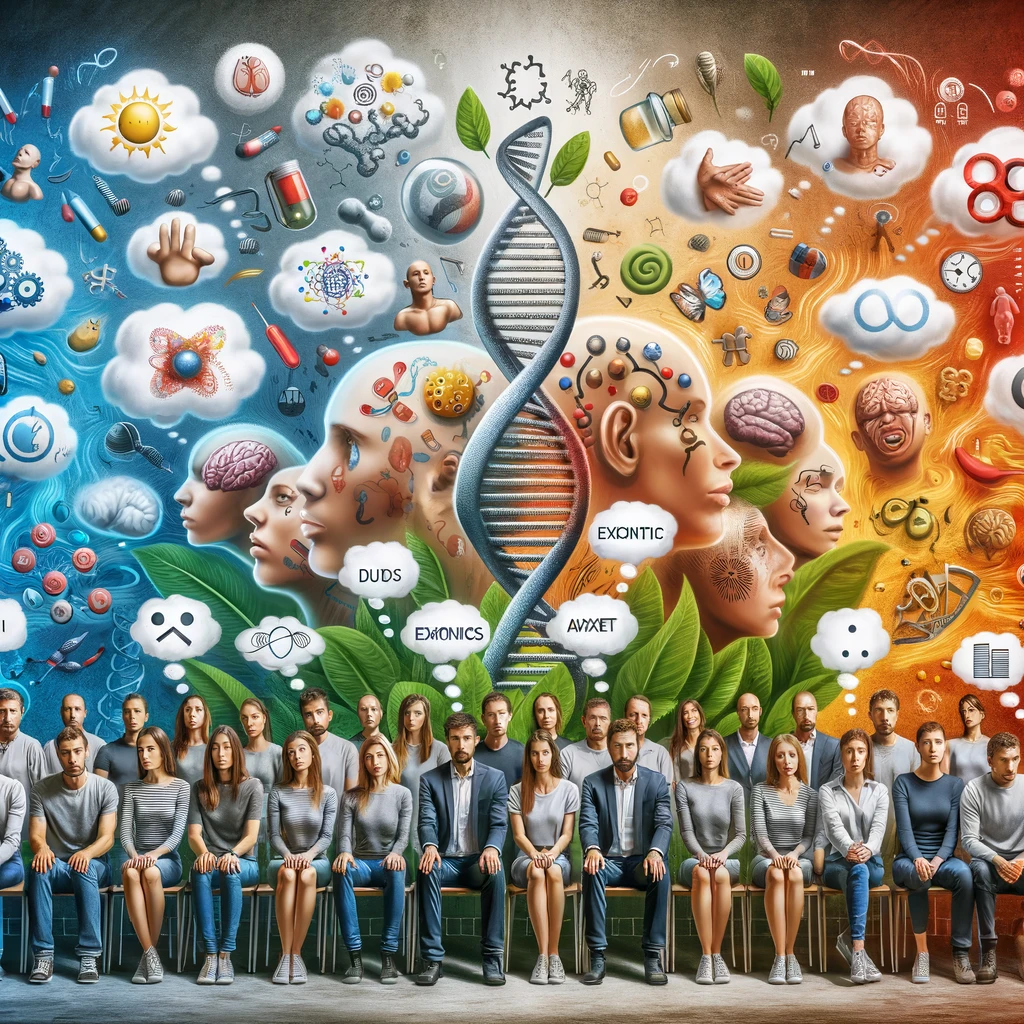Sarkastische Senderporträts durch ChatGPT-4: Eine humorvolle Reise durch das deutsche Medienuniversum

In einem kreativen Experiment haben wir ChatGPT-4, die neueste KI von OpenAI, dazu herausgefordert, sarkastische Darstellungen verschiedener deutscher TV- und Radiosender zu kreieren. Das Ergebnis? Ein humorvolles, überspitztes und farbenfrohes Potpourri, das die Eigenheiten jedes Senders auf charmante Weise überzeichnet. Die Idee hinter diesem Experiment war es, die künstlerische und humoristische Kapazität von ChatGPT-4 zu testen. Anstatt gewöhnliche Beschreibungen zu liefern, sollten die Darstellungen die stereotypen Wahrnehmungen und Klischees der Sender aufgreifen und überzeichnen. Von ARD bis ZDF: Sarkasmus trifft auf Klassik Bei der Darstellung öffentlich-rechtlicher Sender wie ARD und ZDF griff ChatGPT-4 auf klassische Elemente zurück, indem er die Figuren in traditionellen Outfits mit einem Hauch von Übertreibung kleidete. Diese humorvolle Herangehensweise spiegelt die öffentliche Wahrnehmung dieser Sender als Stützen des traditionellen Fernsehens wider. Private Sender: Ein buntes Spektrum Die privaten Sender wie RTL, Pro7 und Sat1 wurden als dynamische, moderne Figuren dargestellt, deren Kleidung und Accessoires die oft sensationellen und unterhaltungsorientierten Inhalte dieser Kanäle widerspiegeln. ChatGPT-4 spielte hier mit modischen Übertreibungen und bunten Farben, um die lebendige Natur dieser Sender hervorzuheben. Radiosender: Von Rock bis Pop Die Radiosender erhielten ebenfalls einzigartige, sarkastische Personifikationen. Sender wie ROCK ANTENNE und KISS FM wurden in rockigen Outfits mit Leder und Band-Accessoires dargestellt, während Pop-Sender wie 1LIVE und bigFM moderne, trendige Kleidung trugen, die ihre jugendliche und dynamische Ausstrahlung unterstreicht. Künstliche Intelligenz als kreativer Partner Dieses Experiment zeigt eindrucksvoll, wie KI-Technologien wie ChatGPT-4 nicht nur informativ, sondern auch kreativ und unterhaltsam eingesetzt werden können. Die humorvollen Darstellungen bieten eine neue Perspektive auf die deutsche Medienlandschaft und demonstrieren das Potenzial von KI, über den Tellerrand hinauszuschauen und konventionelle Grenzen zu überschreiten. Insgesamt bietet dieses ungewöhnliche Experiment einen amüsanten und kreativen Einblick in die Vielfalt des deutschen Rundfunks und zeigt, wie Technologie und Kreativität Hand in Hand gehen können, um unterhaltsame und denkwürdige Inhalte zu schaffen.
Why are people like they are or can you change yourself?

The topic of how various factors such as people’s characterizations, born preferences, epigenetics, mindset, and mental health interact and influence one another is a complex and multifaceted subject. Let’s break down these components to better understand their interplay: 1. People’s Characterizations: This refers to the way individuals are perceived or described based on their behavior, personality, and other observable traits. These characterizations can be shaped by a combination of genetic predispositions, environmental influences, and personal experiences. How we characterize people can also be influenced by societal norms and cultural backgrounds. 2. Born Preferences: These are the innate tendencies or inclinations that a person may have from birth. While the debate of nature vs. nurture is ongoing, it’s widely accepted that certain preferences, such as temperament, can be genetically predisposed. However, the environment in which a person grows up plays a significant role in how these preferences are expressed and developed. 3. Epigenetics: Epigenetics is the study of how your behaviors and environment can cause changes that affect the way your genes work. Unlike genetic changes, epigenetic changes are reversible and do not change your DNA sequence, but they can change how your body reads a DNA sequence. Epigenetic changes can be influenced by several factors, including lifestyle, diet, and stress. These changes can have a significant impact on a person’s health and behavior. 4. Mindset: The concept of mindset refers to the collection of beliefs and attitudes that shape how an individual interprets and responds to various situations. A person’s mindset can greatly influence their behavior, learning potential, and how they handle challenges. Mindsets can be shaped by upbringing, experiences, and education, and they can be a key factor in a person’s overall mental health and well-being. 5. Mental Health: Mental health encompasses emotional, psychological, and social well-being. It affects how we think, feel, and act. Mental health is influenced by a variety of factors, including genetics, brain chemistry, personality, and life experiences. Good mental health is essential for an individual’s overall health and can be maintained or improved through practices like therapy, medication, and lifestyle changes. The interplay between these factors is dynamic and complex. For example, a person’s born preferences might predispose them to certain behaviors, but their mindset and the environment can modify how these preferences are expressed. Epigenetic changes can occur in response to environmental stressors or lifestyle choices, which in turn can impact mental health. Similarly, an individual’s mental health can influence their mindset and behaviors, potentially leading to changes in how they are characterized by others. What is more important? – Born preferences or personal growth? This discussion highlights the importance of considering the holistic nature of human development and behavior. It suggests that no single factor can fully explain a person’s character or choices, and that a comprehensive approach is necessary to understand and support individual well-being. The question of whether born preferences (innate traits and tendencies) or the ability to change oneself (adaptability and personal growth) is more important is complex and does not have a straightforward answer. Both play crucial roles in shaping an individual’s life, and their relative importance can vary greatly depending on the context. Let’s explore both aspects: Born Preferences (Innate Traits and Tendencies): – Role in Development: Innate traits such as temperament, natural talents, and predispositions can significantly influence early development and can shape a person’s initial path in life. – Influence on Personality: Certain aspects of personality are thought to be innate and can affect how an individual interacts with the world. – Genetic Factors: Genetics can predispose individuals to certain behaviors, health conditions, and even preferences, which can have a profound impact on life choices and experiences. 2. **Ability to Change Oneself (Adaptability and Personal Growth)**: – Overcoming Limitations: The ability to change allows individuals to overcome limitations imposed by their innate traits or environmental circumstances. – Lifelong Learning: This ability emphasizes the importance of personal development, learning, and adaptation throughout life. – Response to Environment: Adaptability enables individuals to respond effectively to changing environments, challenges, and opportunities. – Mental Health and Resilience: The capacity for change is closely linked to mental health and resilience, empowering individuals to cope with adversity and grow from their experiences. In reality, the interplay between born preferences and the ability to change is often what shapes a person’s life. Innate traits provide a starting point, but adaptability and personal growth determine how those traits are developed, managed, or even altered over time. Natural talent vs. resilience & discipline For instance, someone may be born with a natural talent for music but may need to cultivate discipline and resilience to fully realize their potential. Conversely, an individual might have certain limitations or challenges but can use their adaptability and learning ability to overcome these hurdles and achieve success. In different contexts, the importance of each factor can vary. For example, in a rapidly changing technological world, adaptability and continuous learning might be more valued. In contrast, in a field that highly values specific innate talents (like certain sports or arts), born preferences might play a more significant role. Ultimately, both born preferences and the ability to change oneself are important, and their relevance can be context-dependent, highlighting the multifaceted nature of human development and success.
ADHD – Only a trending topic or a serious problem for society?

Attention-Deficit/Hyperactivity Disorder (ADHD) is a well-recognized neurodevelopmental disorder, not just a trend. It’s characterized by symptoms such as inattention, hyperactivity, and impulsivity that are more severe, frequent, or debilitating than is typical for a person’s age and development. ADHD is considered a serious concern for several reasons: 1. Impact on Individual Lives: It can significantly impact various aspects of life, including educational achievement, work performance, and social relationships. 2. Long-term Outcomes: Without appropriate management, ADHD can contribute to long-term issues such as low self-esteem, underachievement, and difficulty in maintaining jobs and relationships. 3. Comorbid Conditions: ADHD often coexists with other conditions like anxiety, depression, or learning disabilities, which can complicate diagnosis and treatment. 4. Societal Impact: ADHD can have broader implications, including increased healthcare costs and lost productivity. However, the perception of ADHD as a trend might stem from increased awareness and diagnosis rates in recent years. This increase in diagnosis has led to concerns about overdiagnosis or misdiagnosis in some cases, but this does not undermine the legitimacy of ADHD as a serious condition for those truly affected by it. As with any medical or psychological condition, it’s important to rely on professional diagnosis and treatment rather than self-diagnosis or following trends in media and popular culture. ADHD or bad parenting? The question of whether behavioral issues in children are due to ADHD (Attention-Deficit/Hyperactivity Disorder) or bad parenting is complex and multifaceted. It’s important to approach this topic with sensitivity and an understanding that both ADHD and parenting styles can significantly impact a child’s behavior. However, they are distinct factors, and one does not necessarily cause the other. 1. ADHD as a Neurodevelopmental Disorder: ADHD is a medically recognized neurodevelopmental disorder. It is characterized by patterns of inattention, hyperactivity, and impulsivity that are inconsistent with a child’s developmental level. ADHD is believed to be influenced by genetic and neurological factors. Children with ADHD exhibit these behaviors across multiple settings and situations, not just at home or in response to parenting styles. 2. Role of Parenting: Parenting styles can certainly influence a child’s behavior and development. Inconsistent or harsh parenting can exacerbate behavioral problems, and supportive, structured parenting can help manage them. However, it’s critical to note that parenting alone does not cause ADHD. It’s possible for behavioral issues to stem from parenting practices, but this is different from the neurobiological roots of ADHD. 3. Interaction Effects: In some cases, the challenges of parenting a child with ADHD can lead to strained parent-child interactions. This doesn’t mean that the parenting caused the ADHD, but rather that the symptoms of ADHD can make parenting more challenging, which may sometimes result in less effective parenting strategies. 4. Need for Professional Evaluation: Distinguishing between behavioral issues due to ADHD and those related to family dynamics or parenting practices requires professional assessment. A thorough evaluation by a psychologist, psychiatrist, or pediatrician who specializes in child development is essential. 5. Avoiding Stigma and Blame: It’s important to avoid stigmatizing children or parents based on behavior or diagnoses. ADHD is a complex disorder that requires understanding and support, not judgment. Similarly, parenting is a challenging task, and parents of children with behavioral difficulties need support and resources, not blame. In conclusion, while parenting practices can influence a child’s behavior and may modify the expression of symptoms in a child with ADHD, they do not cause ADHD. It’s essential to view both ADHD and parenting within the broader context of a child’s environment, genetics, and individual characteristics. Professional guidance is key in making accurate assessments and providing appropriate support and interventions.

